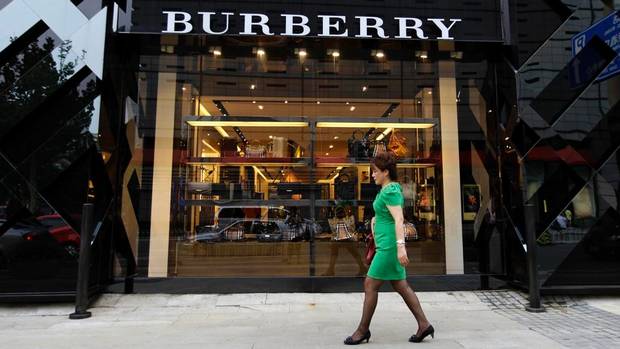Despite the global recession, Chinese consumers’ willingness to purchase luxury goods remains intact. Even when facing the threat of the 2008 financial crisis and its after effects, the demand for luxury goods in the Chinese market is still growing. Over the past few years, many international luxury brands sensed this opportunity for expansion and entered the potentially lucrative Chinese market.
Burberry – Unique online marketing
Headquartered in London, Burberry was founded in 1856. As a luxury brand that represents British culture, it is well-known for its great quality, innovation and classic design. Currently, Burberry owns more than 58 shops in China and the brand is planning on opening an additional 50 stores in the near future. A large portion of Burberry’s success in the Chinese market can be attributed to its online marketing. It has become the first luxury brand that simultaneously appeared on several Chinese social network stations— such as Sina Weibo, Kaixin, Youku and Douban. Burberry is trying to impress most customers using a thorough, interactive and entertaining approach that most other luxury brands have not tried. Thus, people are becoming more aware of its famous design and attitude, even in remote areas of China, as long as they have internet access. This strategy has been very successful in China as more and more Chinese netizens are familiarizing themselves with the brand. On September 19, 2011, Burberry broadcasted its 2012 spring and summer fashion show on Weibo and an hour later, the number of fans immediately exploded to 204,017 and the growth still has yet to stop.
Coach – Increasing margins
In recent years, most other luxury enterprises are cutting costs in a struggling economy. However, the American luxury brand, Coach, has done the opposite as it repurchased agents of the retail business in China from Hong Kong ImagineX Group. By the third quarter of 2011, Coach had opened 85 stores in the greater China region, achieved $185 million of sales. Compared to its other competitors, Coach has an advantage in its multi-channel distribution strategy. The company sells its products in department stores, retail stores, specialty stores and factory-outlet stores to broaden its reach among its potential customers. Using this strategy, Coach opened stores in some undeveloped markets, such as the second-tier and third-tier cities of China. At the same time, Coach put more than 90 percent of its factories in Asian countries to save on labor cost. Because of strict cost control, its gross profit increased despite the struggling economy. In the third quarter of 2012, Coach’s gross margins reached 73.8%, far above the 60% average in luxury industry.
Daxue Consulting Market Research in China
Sources:
Picture Source: Burberry China





